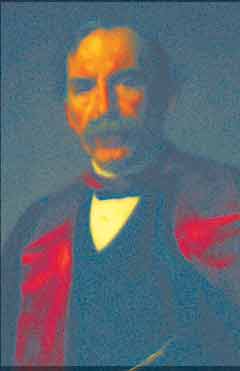Related Research Articles

Sir Charles Scott Sherrington was a British neurophysiologist. His experimental research established many aspects of contemporary neuroscience, including the concept of the spinal reflex as a system involving connected neurons, and the ways in which signal transmission between neurons can be potentiated or depotentiated. Sherrington himself coined the word "synapse" to define the connection between two neurons. His book The Integrative Action of the Nervous System (1906) is a synthesis of this work, in recognition of which he was awarded the Nobel Prize in Physiology or Medicine in 1932.

Mason Science College was a university college in Birmingham, England, and a predecessor college of Birmingham University. Founded in 1875 by industrialist and philanthropist Sir Josiah Mason, the college was incorporated into the University of Birmingham in 1900. Two students of the college, Neville Chamberlain and Stanley Baldwin, later went on to become Prime Ministers of the UK.

The National Institute for Medical Research, was a medical research institute based in Mill Hill, on the outskirts of north London, England. It was funded by the Medical Research Council (MRC);
Sir Arthur William Morrow, was an Australian physician and specialist in gastroenterology. He served terms as president of the Royal Australasian College of Physicians and of the Australian Club.

Prof Arthur Gamgee FRS FRSE was a British biochemist.

Sir Thomas Peter Anderson Stuart was a Scottish-born professor of physiology, founder of the medical school at the University of Sydney.

Sir John Rose Bradford, 1st Baronet was a British physician.
Prof Thomas Swale Vincent MD FRSE LLD was a British physiologist who spent most of his working life in Canada.

John Berry Haycraft FRSE was a British physician and professor in physiology who carried out important medical research.

John Gray McKendrick FRS FRSE FRCPE LLD was a distinguished Scottish physiologist. He was born and studied in Aberdeen, Scotland, and served as Regius Professor of Physiology at the University of Glasgow from 1876 to 1906. He was co-founder of the Physiological Society.
Urban Pritchard was a British otologist who made important contributions to understanding of the organ of Corti.

John Beresford Leathes DSc, MA, FRS, FRCS, FRCP was a British physiologist and an early biochemist. He was the son of Hebrew scholar Stanley Leathes, and the brother of the poet, historian and First Civil Service Commissioner Sir Stanley Mordaunt Leathes.
Sir Douglas Vernon Hubble was a paediatric endocrinologist, general practitioner, and professor of paediatrics and dean of medicine at the University of Birmingham. Hubble was principally notable for research into paediatric endocrinology and publishing a number of papers on the subject, which gave him a national reputation.
Patrick Wensley Clarkson,, was a plastic surgeon at Guy's Hospital in London, best known for surgery of the hand and the description of "Poland Syndactyly", later termed Poland syndrome.

Mark Edwin Silverman MD MACP FACC, was an American cardiologist, medical historian, medical educator and author of more than 200 medical articles and a number of books, who founded the cardiology program at Piedmont Hospital in Atlanta, Georgia.

Sir Thomas Frederick Chavasse, was an English surgeon, who learned the practice of antiseptic surgery from Joseph Lister in Edinburgh and remained an exponent of this technique throughout his career. As a surgeon at the Birmingham General Hospital he was influential in the design of the new hospital in 1897 and was an active fundraiser for the project. An active supporter of the British Red Cross Society and the St John's Ambulance Brigade, he was knighted in 1905.

Sir Donald Macleod Douglas, was a Scottish academic surgeon. His schooling and medical undergraduate education were at St Andrews following which he embarked at an early stage on an academic career, winning a scholarship to pursue research at the Mayo Clinic, Minnesota.
The Jodrell Chair of Physiology is a chair at University College London, endowed by Thomas Jodrell Phillips Jodrell in 1873. The chairs succeeded the previous chair in Anatomy and Physiology.
Henry Barcroft was a British scientist and academic, who was Professor of Physiology at St Thomas' Hospital Medical School, London from 1948 to 1971.
References
- 1 2 I. de Burgh Daly; Gregory, R. A. (1970). "Charles Arthur Lovatt Evans. 1884-1968". Biographical Memoirs of Fellows of the Royal Society. Royal Society. 16: 233–252. doi:10.1098/rsbm.1970.0008.
- 1 2 "Sir Charles Arthur Lovatt Evans | RCP Museum". history.rcplondon.ac.uk.